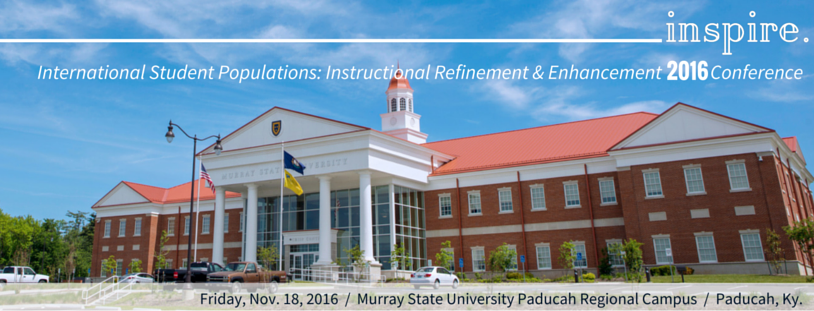Bottom-Up Approach: Student Perspectives on Effective Teaching and Managing Classes with International Students
Author Biography
Dr. Bellarmine (Bella) Ezumah is Associate Professor of Media Studies in the Department of Journalism and Mass Communications at Murray State University. She joined Murray State in the Fall of 2011 as a Visiting Assistant Professor and earned the Tenure Track Assistant Professor position in 2012. She teaches graduate and undergraduate classes consisting of Mass media theory, international communications, mass media effects, and media in contemporary society, and new technologies. She has directed 17 theses and independent research with undergraduate and graduate students most of whom were international students. Dr. Ezumah has published over 22 peer-reviewed journal articles, book chapters, and conference proceedings and have presented her work at over 21 conferences – receiving Six Best paper awards. She was named the 2014 Emerging Scholar by the Murray State Alumni Association. Her research interest is multi-disciplinary incorporating mass media effects, international communication, religion and media, and impact of emergent technologies in education, business, and interpersonal realms. She also is the current Faculty Advisor for the Murray State African Students Association and serves in various committees at Murray State University, national and international academic organizations, and academic journals. Dr. Ezumah is knowledgeable in international matters having lived, studied, visited, and conducted research in several countries including Nigeria, Ghana, Jamaica, Greece, Austria, Germany, Canada, and the United States.
Abstract
This panel adopts a Participatory Action Model (PAM) which posits, grassroots participation can help recapture the knowledge and narratives of the people directly involved in the issue at hand. Unlike the top-down approach, PAM entails a collaborative effort of all stakeholders of a project and tends to promote an acknowledgment that people are capable of helping themselves and that everyone has something of interest to share. PAM also seeks to tap people’s current knowledge and thus applies a practical and collaborative approach through social interaction. The ultimate goal of PAM according to Kemmis and McTarggart (2008) is to help people recover and learn how best to work to improve their current situation. In light of the above, this forum, while acknowledging Instructor’s ideas, suggestions, and experiences, offers an alternative approach that taps into the lived experiences of international students at Murray State University. Essentially, this panel will consist of one faculty that serves as a facilitator and six to eight undergraduate and graduate international students who will share their experiences, backgrounds, and challenges, certain pedagogical styles that have helped their learning experiences and improved retention at Murray State University. Additionally, students will proffer suggestions on what might work best for them and will equally answer questions from instructors and other conference attendees.
Session Type
Panel Session
Learning Objectives
Best Practices for teaching international students
Shared personal experiences of adapting to the US pedagogical styles by the international students
Student-perspective of challenges faced by international students and ways of ameliorating those challenges
Start Date
18-11-2016 3:45 PM
End Date
18-11-2016 4:30 PM
Bottom-Up Approach: Student Perspectives on Effective Teaching and Managing Classes with International Students
This panel adopts a Participatory Action Model (PAM) which posits, grassroots participation can help recapture the knowledge and narratives of the people directly involved in the issue at hand. Unlike the top-down approach, PAM entails a collaborative effort of all stakeholders of a project and tends to promote an acknowledgment that people are capable of helping themselves and that everyone has something of interest to share. PAM also seeks to tap people’s current knowledge and thus applies a practical and collaborative approach through social interaction. The ultimate goal of PAM according to Kemmis and McTarggart (2008) is to help people recover and learn how best to work to improve their current situation. In light of the above, this forum, while acknowledging Instructor’s ideas, suggestions, and experiences, offers an alternative approach that taps into the lived experiences of international students at Murray State University. Essentially, this panel will consist of one faculty that serves as a facilitator and six to eight undergraduate and graduate international students who will share their experiences, backgrounds, and challenges, certain pedagogical styles that have helped their learning experiences and improved retention at Murray State University. Additionally, students will proffer suggestions on what might work best for them and will equally answer questions from instructors and other conference attendees.


